We got a book contract today. And what a herculean effort that feels; talk about delayed gratification. My friend/co-editor and I first discussed the idea 2 years ago, when we saw a publisher’s call for proposals. Yeah that sounds cool, we thought. So we worked out our broad ideas and the people that we wanted to contribute. Our focus was mainly on early career scholars who are producing some real ‘cutting edge’ research and we invited them to submit work for review. My co-editor and I then worked on the narrative that would frame the book, as well as finding out that all important information that publishers want to know: who will buy it. Probably around 6 or so months after our original conversation and discussion with series editors we were ready to submit our proposal.
And then we waited.
About six months later we got back in touch with the series editors, ‘any news from the publishers’….’we’ll get back to you’
And so we waited.
Then we got a reply to the effect that the proposal had been lost and then under a pile somewhere and then the person involved had been on holiday etc but they would get back to us with comments.
And so we waited.
This was now about 18 months after our original idea. And so we decided to approach another publisher. We did this in December last year.
As the contributors were mainly early career scholars,the publishers asked us to invite someone ‘famous’ to get involved. You can imagine our surprise, and delight, when not only did we get one of, if not THE leading scholar in the discipline to write our foreword. And then it just got a bit better. We invited one of the leading activists in the field to write an afterword. And she said yes 🙂
The publisher then asked to provide a sample chapter. I wrote the first draft of this in January on the writing workshop that we held. By the end of January we had our ‘famous’ people in place, our sample chapter and what we thought was a good proposal in place. Our editor at the publishers was set to go off on holiday in March, and so she assured us she would get back touch by the end of February.
And then we waited.
The reviewers were slow, one disappeared and a new one had to be found. We got reviewers comments back in May. We revised our introductory sample chapter in light of these comments and resubmitted to the publisher within about two weeks.
We then had a (relatively short wait)
The chapter and proposal went back out to review, and we were then asked, would we do the minor things the reviewers asked. Of course, we said (a pragmatic) YES!
And so, today, 2 years after we first chatted through our ideas, and then planned our book, we have a contract. And of course it doesn’t end there. We now have to collect the chapters, get them reviewed. If we can get this done by next Easter, we are setting ourselves ambitious goals. From manuscript submission to holding the book in your hands includes copyediting, indexing, proofs to read, and of course the print run. And of course, before all of that it has to go back out for review. This can take anything from 9-18 months.
Our book is therefore likely to have a 2015 publication date (if we are lucky) which given we acted upon our original idea in 2011, does feel rather a long time!
Gender in 21st Century Popular Culture:the Politics of being a woman in the 21st century, editors Heather Savigny & Helen Warner (Basingstoke:Palgrave) may well be coming eventually to a bookstore near you.
with thanks to my early career colleagues in CMC, the Media School and Iain MacRury
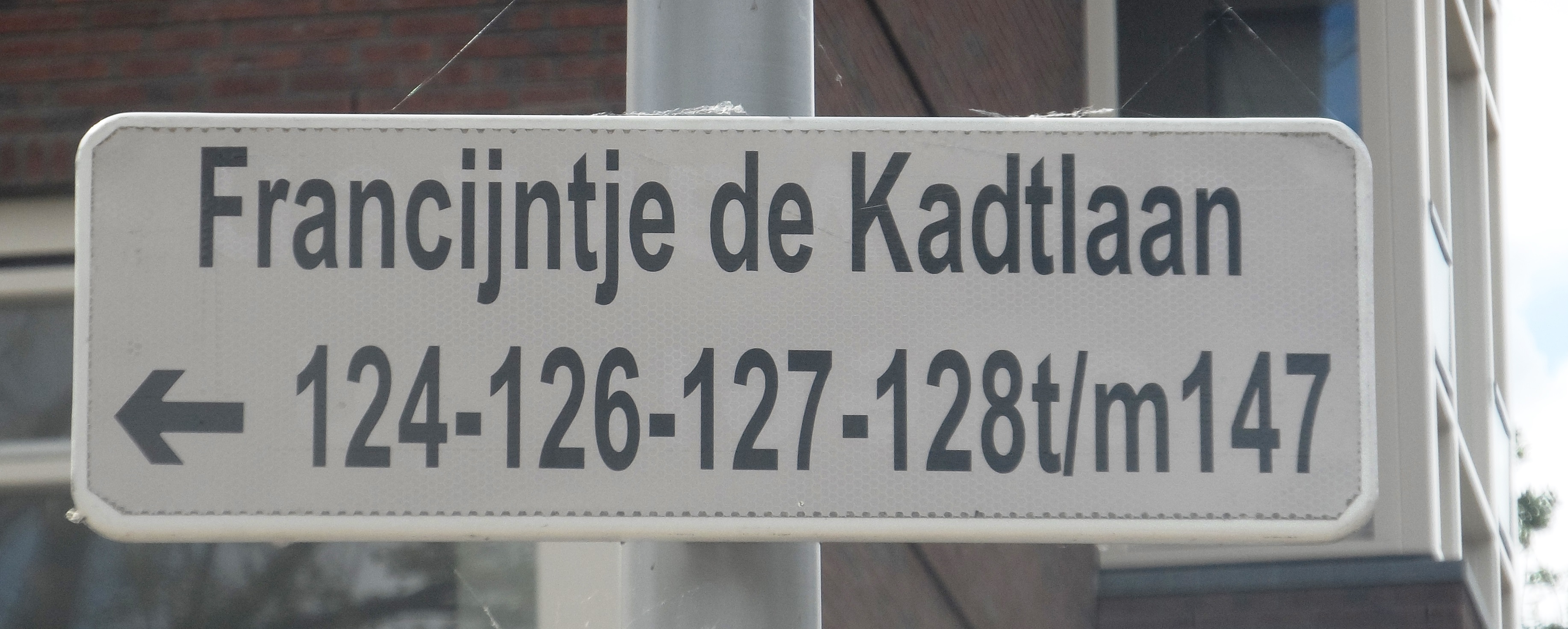 Prof. Edwin van Teijlingen published a short article in an online newspaper in the Netherlands De Vlaardinger. This online paper is based in the town where Prof. van Teijlingen was born and where he lived all is life before moving to the UK in 1984. He wrote this article whilst on holiday visiting his parents and other family members.
Prof. Edwin van Teijlingen published a short article in an online newspaper in the Netherlands De Vlaardinger. This online paper is based in the town where Prof. van Teijlingen was born and where he lived all is life before moving to the UK in 1984. He wrote this article whilst on holiday visiting his parents and other family members.

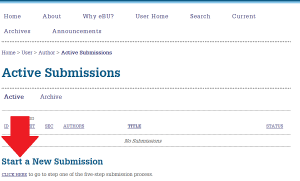

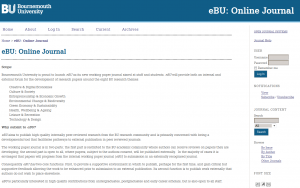
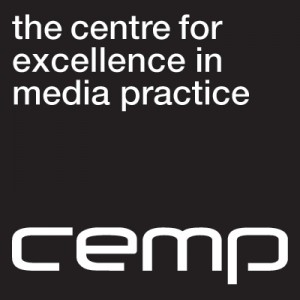
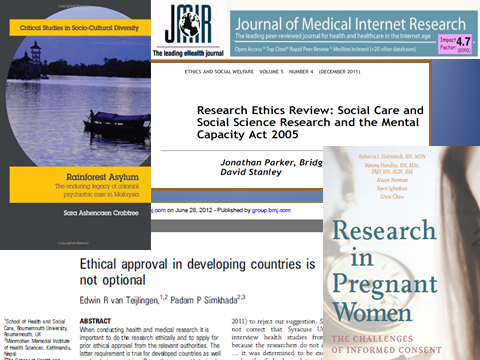
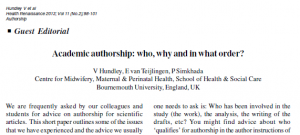

 Reflecting on the experience of our recent mock REF exercise I noted that there were some negative views towards open access publishing that were expressed during the process. This is a little concerning considering the UK government is planning to make all outputs arising from publicly-funded research available via open access outlets by 2014 and considering the open access mandates the major research funders have as part of the terms of their grant funding (including the research councils, the Wellcome Trust and the European Commission). In addition, the four UK funding councils are currently consulting with the sector regarding their proposal to introduce a requirement for all outputs submitted to the post-2014 REF exercise to be published on an open access basis, wherever the concept of open access is relevant. As an institution and as individual researchers we need to ensure that we are able to comply with these requirements and that we are able to positively embrace open access publishing.
Reflecting on the experience of our recent mock REF exercise I noted that there were some negative views towards open access publishing that were expressed during the process. This is a little concerning considering the UK government is planning to make all outputs arising from publicly-funded research available via open access outlets by 2014 and considering the open access mandates the major research funders have as part of the terms of their grant funding (including the research councils, the Wellcome Trust and the European Commission). In addition, the four UK funding councils are currently consulting with the sector regarding their proposal to introduce a requirement for all outputs submitted to the post-2014 REF exercise to be published on an open access basis, wherever the concept of open access is relevant. As an institution and as individual researchers we need to ensure that we are able to comply with these requirements and that we are able to positively embrace open access publishing.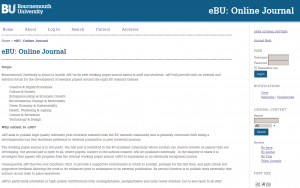











 REF Code of Practice consultation is open!
REF Code of Practice consultation is open! BU Leads AI-Driven Work Package in EU Horizon SUSHEAS Project
BU Leads AI-Driven Work Package in EU Horizon SUSHEAS Project Evidence Synthesis Centre open at Kathmandu University
Evidence Synthesis Centre open at Kathmandu University Expand Your Impact: Collaboration and Networking Workshops for Researchers
Expand Your Impact: Collaboration and Networking Workshops for Researchers ECR Funding Open Call: Research Culture & Community Grant – Apply now
ECR Funding Open Call: Research Culture & Community Grant – Apply now ECR Funding Open Call: Research Culture & Community Grant – Application Deadline Friday 12 December
ECR Funding Open Call: Research Culture & Community Grant – Application Deadline Friday 12 December MSCA Postdoctoral Fellowships 2025 Call
MSCA Postdoctoral Fellowships 2025 Call ERC Advanced Grant 2025 Webinar
ERC Advanced Grant 2025 Webinar Update on UKRO services
Update on UKRO services European research project exploring use of ‘virtual twins’ to better manage metabolic associated fatty liver disease
European research project exploring use of ‘virtual twins’ to better manage metabolic associated fatty liver disease